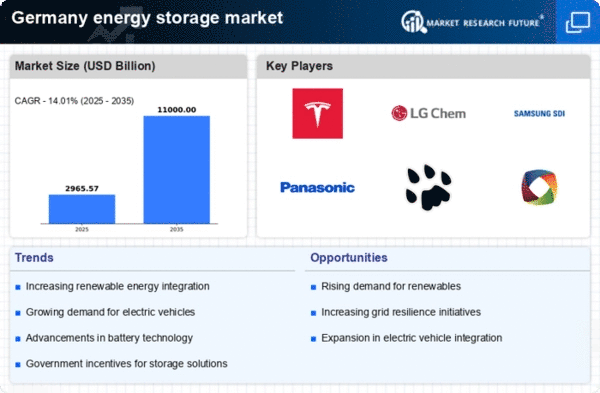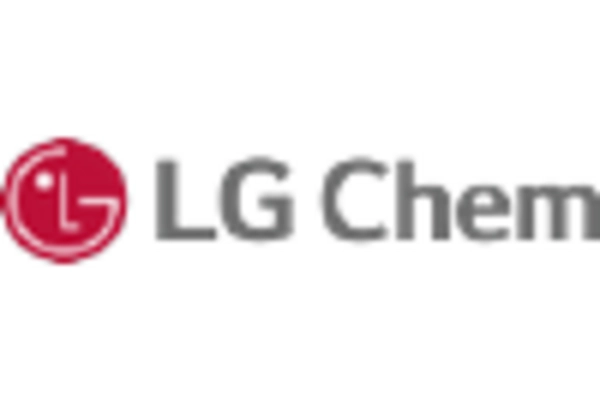Government Incentives and Policies
The energy storage market in Germany is significantly influenced by government incentives and policies aimed at promoting renewable energy integration. The German government has implemented various subsidies and tax benefits for energy storage systems, which can cover up to 30% of installation costs. This financial support encourages both residential and commercial sectors to invest in energy storage solutions. Additionally, the Renewable Energy Sources Act (EEG) has established a framework that facilitates the deployment of energy storage technologies, thereby enhancing grid stability and efficiency. As a result, the energy storage market is projected to grow at a CAGR of approximately 15% over the next five years, driven by these favorable policies.
Corporate Sustainability Initiatives
The energy storage market in Germany is increasingly driven by corporate sustainability initiatives. Many companies are adopting energy storage solutions as part of their commitment to reducing carbon footprints and achieving sustainability goals. By integrating energy storage systems, businesses can optimize energy usage, lower operational costs, and enhance their resilience against energy price fluctuations. This trend is particularly evident in sectors such as manufacturing and logistics, where energy efficiency is paramount. As more corporations prioritize sustainability, the energy storage market is likely to expand, with estimates suggesting a market size of €8 billion by 2026.
Growing Consumer Awareness and Demand
Consumer awareness regarding energy efficiency and sustainability is on the rise in Germany, significantly impacting the energy storage market. As individuals become more informed about the benefits of energy storage systems, there is a growing demand for residential energy storage solutions. This trend is further fueled by the increasing availability of information and resources related to energy storage technologies. Homeowners are now more inclined to invest in energy storage systems to reduce energy costs and enhance energy independence. Consequently, the energy storage market is expected to experience robust growth, with a projected increase in residential installations by 25% over the next three years.
Rising Energy Demand and Supply Challenges
Germany's energy landscape is undergoing a transformation, characterized by rising energy demand and supply challenges. The energy storage market is responding to the increasing need for reliable energy supply, particularly during peak demand periods. With the transition towards a more decentralized energy system, the reliance on intermittent renewable sources such as wind and solar has intensified. Consequently, energy storage systems are becoming essential for balancing supply and demand. The market is expected to reach a valuation of €10 billion by 2027, as stakeholders seek to mitigate the risks associated with energy shortages and ensure a stable energy supply.
Technological Advancements in Storage Solutions
Technological advancements are playing a pivotal role in shaping the energy storage market in Germany. Innovations in battery technologies, such as lithium-ion and flow batteries, are enhancing the efficiency and lifespan of energy storage systems. These advancements not only reduce costs but also improve the overall performance of energy storage solutions. Furthermore, the integration of smart grid technologies allows for better management and optimization of energy storage systems. As a result, the energy storage market is witnessing a surge in adoption, with projections indicating a growth rate of 20% annually as new technologies emerge and existing systems are upgraded.
















